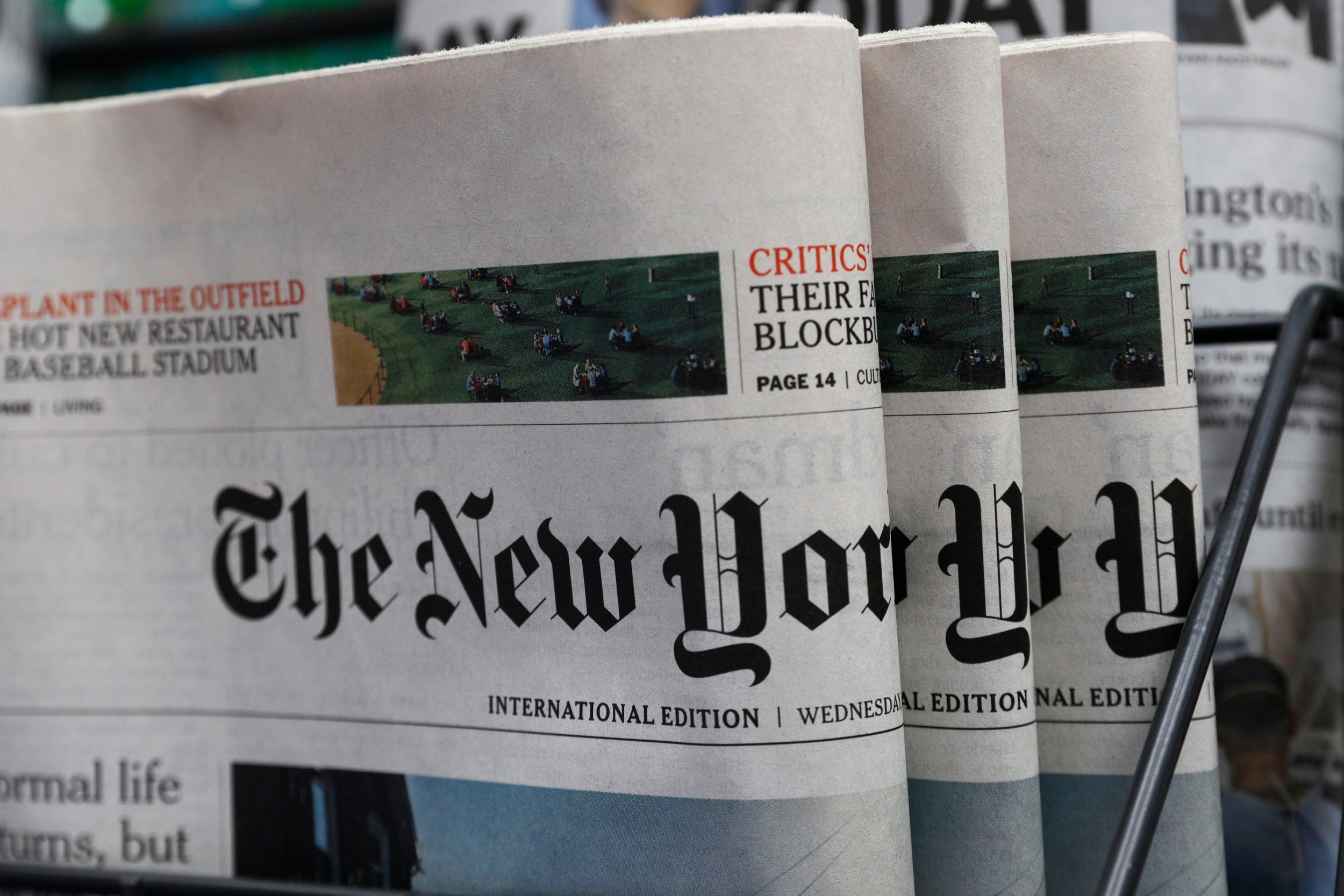New York Times pulls journalists out of Hong Kong due to threat of 'sweeping' new security law
While correspondents covering Hong Kong will remain, about a third of paper’s staff set to leave as Asia digital hub is relocated to Seoul

Your support helps us to tell the story
From reproductive rights to climate change to Big Tech, The Independent is on the ground when the story is developing. Whether it's investigating the financials of Elon Musk's pro-Trump PAC or producing our latest documentary, 'The A Word', which shines a light on the American women fighting for reproductive rights, we know how important it is to parse out the facts from the messaging.
At such a critical moment in US history, we need reporters on the ground. Your donation allows us to keep sending journalists to speak to both sides of the story.
The Independent is trusted by Americans across the entire political spectrum. And unlike many other quality news outlets, we choose not to lock Americans out of our reporting and analysis with paywalls. We believe quality journalism should be available to everyone, paid for by those who can afford it.
Your support makes all the difference.The New York Times has said it is transferring its Asia bureau out of Hong Kong because of the possible implications of the strict national security laws imposed by China in the city.
In a memo to staff, the paper’s editors said the “sweeping” new legislation would create “uncertainty” for journalists working in Hong Kong.
The move will see all of The Times’ digital team in Hong Kong, journalists who deal with breaking news while offices in London and New York are offline, transfer to Seoul in South Korea over the next year.
The paper’s reporters and correspondents covering Hong Kong itself will remain in the city and editors said they have “every intention of maintaining and even increasing our coverage of the city’s transformation, as well as using it as a window on China”.
The decision will affect about a third of The Times’ staff in Hong Kong, with other departments including local print production expected to remain.
Hong Kong’s new national security law, passed on 30 June, defines and bans subversion, secession, terrorism and foreign collusion.
Activists have expressed concern that the offence of “subversion” in particular could be used by the authorities to penalise the work of critical journalists, human rights activists and defence advocates, something that is a more common practice on the mainland.
“China’s sweeping new national security law in Hong Kong has created a lot of uncertainty about what the new rules will mean to our operation and our journalism,” management told staff in the memo on Tuesday, according to a report on the paper’s website.
“We feel it is prudent to make contingency plans and begin to diversify our editing staff around the region.”
The New York Times was among the American news outlets caught up in the worsening of diplomatic relations between the US and China in recent months, with several of the paper’s staff being deported from Beijing. China said it was a response to Washington imposing tighter restrictions on Chinese journalists operating out of the US.
Like their colleagues from The Washington Post and The Wall Street Journal who were similarly treated, the deported journalists were also prevented from relocating to Hong Kong – a decision that was seen as unprecedented at the time.
In 2018, Hong Kong refused to renew the working visa of the prominent Financial Times journalist Victor Mallet. Mallet was the vice-president of the Hong Kong Foreign Correspondents’ Club, which angered Beijing by chairing a talk involving a figure advocating for Hong Kong’s independence. Later, Mallet was also refused entry into Hong Kong as a tourist.
The New York Times said its decision came as several journalists were already experiencing work permit issues in Hong Kong, a city that has been seen as a bastion of freedom of the press and a global financial powerhouse. With Donald Trump’s announcement on Tuesday that the US will no longer give preferential trading status to the city, both those statuses now appear under threat.
“Hong Kong has been a leader in supporting the rights of a free press in Asia for decades,” said Times spokesperson Ari Isaacman Bevacqua. “It is essential that it continues to do so.”
Join our commenting forum
Join thought-provoking conversations, follow other Independent readers and see their replies
Comments